About
From the invention of the steam locomotive to the abolition of the slave trade, the 19th century was an age of unprecedented cultural, political, and social change. Learn how this period of experimentation, discovery and industrialisation challenged the existing order of society and changed the prevailing definitions of art.
This six-week course explores how concerns around modernity and tradition, popular and high culture, social class, gender,race and ethnicity, influenced both the artists and collectors of this new age. Each week we examine a theme that defined the period and explore its impact on paintings in the National Gallery and beyond, with a focus on Constable, Delacroix, Millais, Monet, Morisot, Van Gogh and others.
Find out more about 'Stories of art' and upcoming modules.
Week 1: A new age and a new gallery
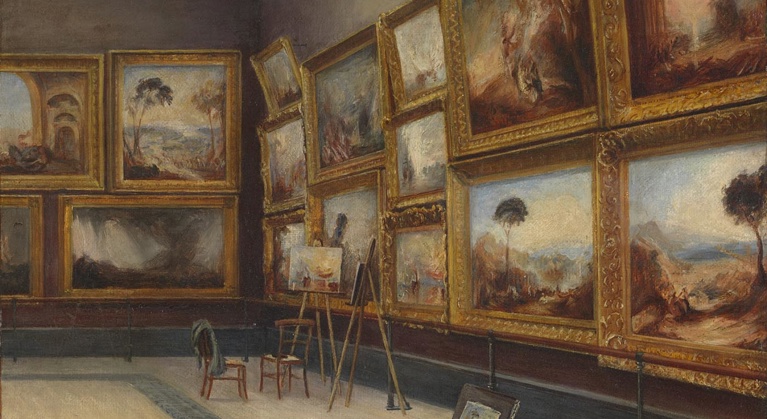
With the foundation of the National Gallery in 1824 and the opening of the Wilkins Building in Trafalgar Square in 1838 (the year of Queen Victoria’s coronation), the formation of this national institution and its collection lies at the very heart of the history of 19th-century painting.
In this first session, Amy Mechowski will set the stage, giving an overview of the module and introducing the period. After the break, we will be joined by Dr Susanna-Avery Quash, Senior Research Curator (History of Collecting), who will talk about the National Gallery’s foundation and its development under Charles Eastlake.
Week 2: Academies and rivalries
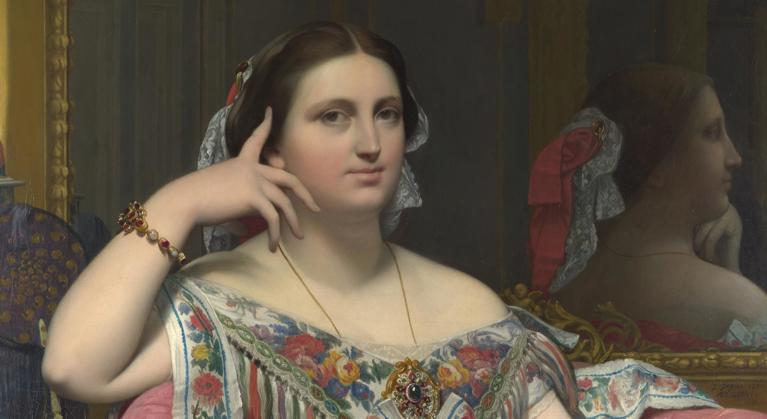
The critical role of academies of art in artists’ training, public taste and official patronage was well-established by the mid-century – as artists vied for recognition, validation, and visibility.
The rivalry between French artists Ingres and Delacroix has often been seen as a conflict between the period’s tradition-based Neoclassicism and a non-conformist Romanticism.
Meanwhile, Romanticism (itself a disputed category) presented a battle ground of its own for British artists Turner and Constable as they grappled with utopian and dystopian visions of an industrialised world.
Week 3: Realism, naturalism, and representation
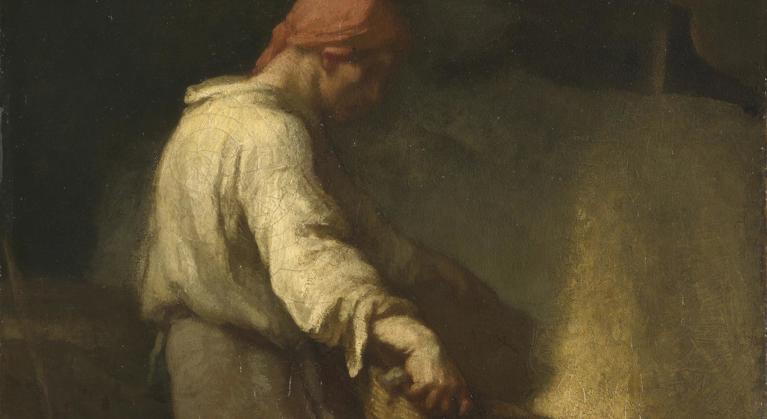
As the authority of the art academies began to be challenged by what would later be regarded as avant-garde movements, artists exhibited radical works, which opened up institutional critiques.
With the Realists, represented by Courbet, Millet, and Manet in France and important contributions to social realism by members of the Pre-Raphaelite Brotherhood and others in England, direct observation came to the forefront of artistic practice. The relative success of efforts to convey a truthful and objective vision of the world is brought into question when viewed through the lens of gender, empire, and religion.
After the break, we are joined by biographer and curator Dr Jan Marsh, who will discuss Pre-Raphaelite responses to the US Civil War.
Week 4: The painter(s) of modern life
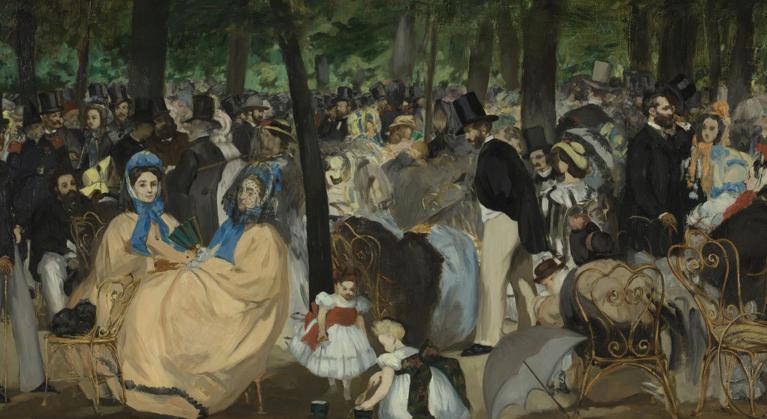
The imagery of contemporary life and modern subjects was embraced by artists who were heirs to a Realist legacy – not only in France, Britain, and the United States, but also in Scandinavia, Germany and Eastern Europe.
Played out in the spaces of modernity – the street, the café, the shop, the opera and theatre, the interior, the garden and the park – developments in painting were shaped by shifting social, cultural and political structures. These were manifested in challenges to the hierarchy of genres in painting as well as themes of identity, representation, and performance. We will especially focus on a crisis in the genre of the nude to explore these issues.
Week 5: The advent and advance of Impressionism
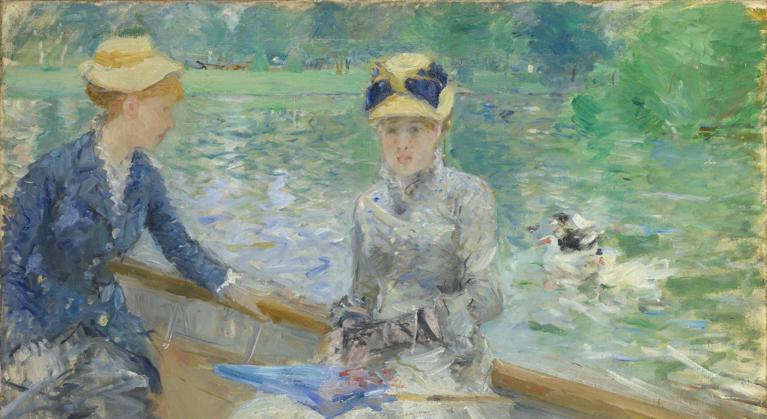
From their first independent exhibition of 1874, the group of artists that would come to be known as the Impressionists forever changed approaches to painting in subject and technique with a new visual language to depict modern life.
Significantly, the work of women artists, who were regarded by their contemporaries as important members of this group, including Berthe Morisot and Mary Cassatt, emerged within the context of representations of femininity. And at a moment when both gendered social spheres and national schools of painting were called into question, American artists such as John Singer Sargent and James McNeill Whistler moved freely between French and English artistic and social circles with success.
After the break, guest speaker Dr Jenny Graham will speak on Whistler’s paintings and the theme of ‘whiteness’, with reference to race, gender and the public display of art in London and Paris.
Week 6: The crisis of Impressionism
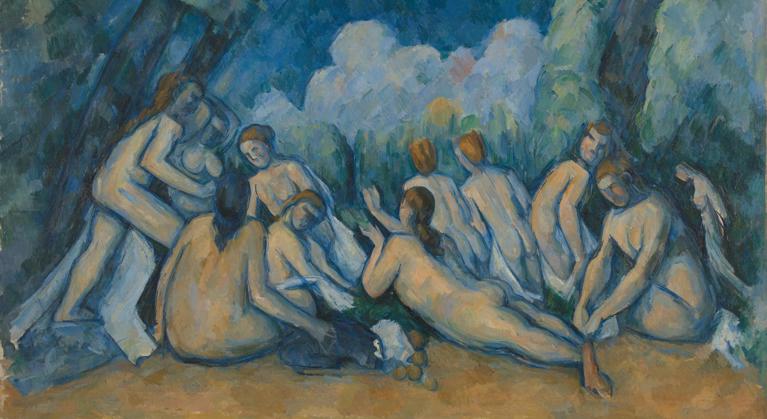
With the last of the independent exhibitions in 1886 came the debut of artists for whom the English painter and art critic Roger Fry would coin the term ‘Post-Impressionists’ 20 years later.
Seurat, Van Gogh, Gauguin and others explored the abstract and symbolic in colour, form, subject and technique. It was their contemporary, Cezanne, however, who would be declared the founder of 20th-century Modernism within the canon of the history of art.
The module will conclude by drawing out some of the key themes and ideas explored over the past six sessions.
Your tutor
Dr Amy Mechowski is a freelance art historian, lecturer and curator, specialising in issues of sexuality and gender in 19th‐century art and material culture. Among her most recent publications is a chapter in ‘Sculpture, Sexuality and History’, exploring the display and reception of 19th‐century sculptures of the female nude in the V&A (Palgrave, 2019). Previously working as a Curator at the V&A and then as Head of the V&A Academy, she now leads courses for Sotheby’s Institute of Art.
Watch again
Can't make Wednesday evenings but don't want to miss out? No problem, you can watch again.
'Stories of art' sessions are recorded and made available to you for one week.
A video of the week's lecture will be uploaded and available for you to watch via your National Gallery account on Friday afternoons, in time for the weekend. Just be sure to watch it by the following Friday lunchtime, as it will be taken down on Friday afternoons.
Format
Each session lasts for 2 hours and includes a lecture delivered by course lecturer Amy Mechowski followed by a short break and further discussion.
Time will be allowed for questions and discussion via Q&A.
Handouts will be available via your National Gallery account on Tuesday mornings.
Optional homework is provided to help you prepare for the following week's session.
Booking information
This is an online ticketed course hosted on Zoom. Please book a ticket to access the course. Only one ticket can be booked per account.
You will be emailed an E-ticket with instructions on how to access the course via your National Gallery account. All course information including your Zoom link, weekly handouts, and recordings will be available here.
Your link will be valid for the duration of the course.
Booking after the course has started
You are welcome to join the module at any point during its six-week run. However, please note that you will only be able to see the recording from the previous session, as these are taken offline after one week.
Testimonial from a previous participant
"I have so appreciated the way that all the tutors have made art history accessible and interesting in a friendly, down-to-earth way. Where jargon has been used it has been explained in handout glossaries as well as verbally, making it inclusive, whatever the previous knowledge – or not – of the participants. The optional homework on Padlet has helped me see myself as part of a group rather than learning in isolation. It has been something to look forward to each week."
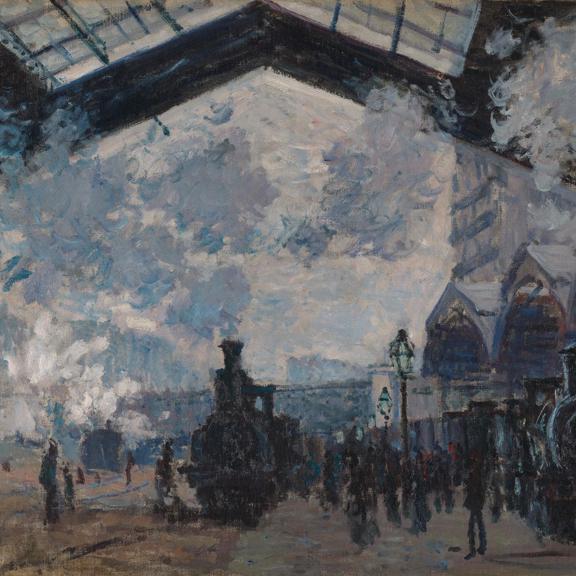

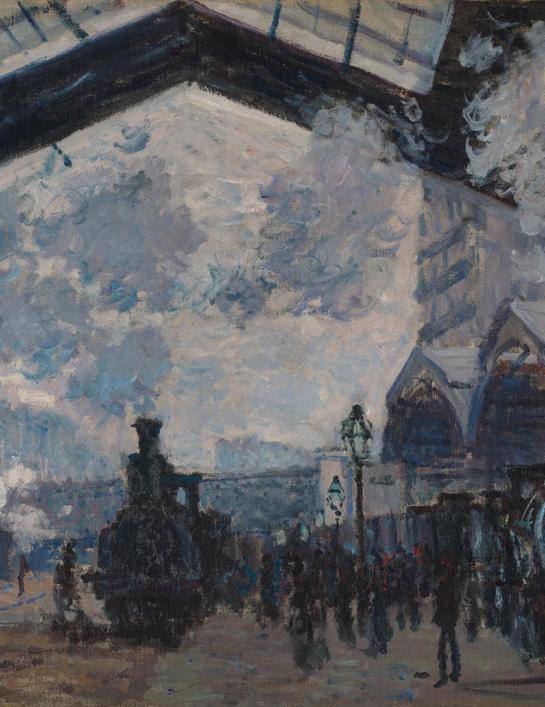
Stories of art 1800-1900
Online tickets
Standard: £75
Concessions: £70.50
This is an online course, hosted on Zoom.
Please book a ticket to access the event. Only one ticket can be booked per account.
You will be emailed an E-ticket with instructions on how to access your online events, films and resources via your National Gallery account.
Bookings close ten minutes before the event.
Concessions are for full-time students, jobseekers, and disabled adults.
